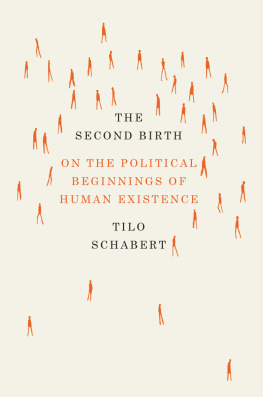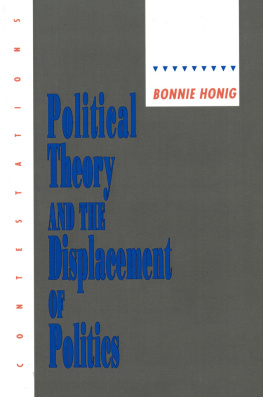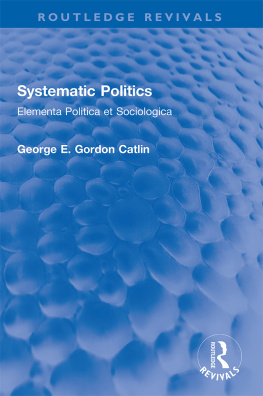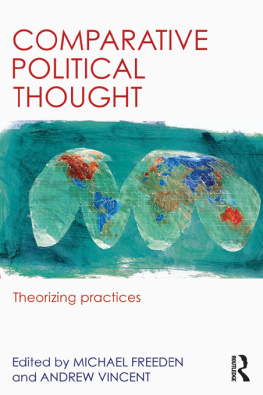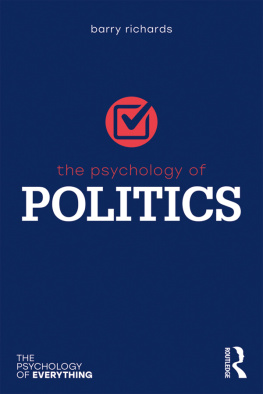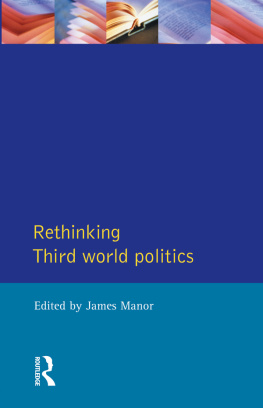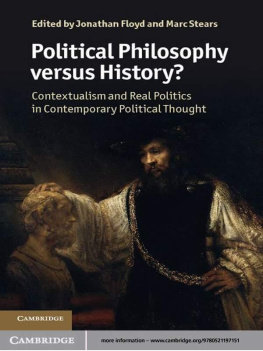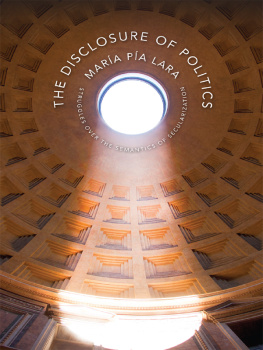Introduction
Distinction between first and second birth
The Gestalten of human life are Gestalten of power
The reflection on the political
To exist means to govern creatively
At the Start
Distinction between start and beginning
What are beginnings?
The firstbodilybirth
Power is the Gestalt of humanity
In Number
Number is the mode of all creation
From the One to the Many
The world in an order of number
Human beings in the order of number
Number and language
The beginning in number
The One and the Many
In Body
The power of bodies
The political problem of a bodily-spatial presence
The primary question of power among human beings
Body-politics: the image of the train station
Bodies are prevented by bodies from reaching an understanding
Bodies necessitate politics: comparison of human beings and angels
The civilization humans need: a creation made of power
The science of the founding of politics: Ibn Khaldn on the establishment of a civilization that fashions human beings into human beings
Human beings and their bodies: lonely and yet eloquent
The message of bodies
The doctrine of human bodies for the welfare of human beings
The beginning from which human beings become sociable to each other
The anthropophanous event
Unsociability and sociability are never interchangeable conditions
Toward a political world of human beings: a politics for bodies
A world different from the world of bodies: visions of paradise
The specific mode of bodily existence under paradisiacal conditions
Ibn Khaldns distinction between a hypothetically and an empirically proceeding political science
Beyond historical time: paradisiacal times
Images of human society under paradisiacal conditions: Hesiod, Empedocles, Plato, Huainanzi, Rousseau, Fichte, Sartre
The para-empirical product of natural man
Anthropogonic logic: its formulation in Chinese thought
The modes of creation: political processes
Through their beginnings human beings are actors in the politics of creation
In Action
Human beings exist in action and in no other way
Pascal and Plato on human existence in constant movement
The existence of human beings: an existence oriented toward power
The great question: to act toward what and for what?
Human beings as the beginning and the begetters of their actions
Human beings come to the power of their action out of the beginning
Lines of meaning in relation to the totality of existence
The freedom of human beings to exist creatively
In Consciousness
For human beings the soul is the faculty of their existence
In the clarity of consciousness
The eyes of cognition are in principle not opened
In the night of cognition
The power to create as a power to destroy
A Gestalt of power for the recognition of meaning
The work of the soul
In the soul what consciousness is becomes apparent
Human beings as capable of humanity
The polis human being
The souls work of government
The beginning of political society in the Gestalt of the power of consciousness
The culmination of human life occurs politically
In Grace
The figuration of creation in the process of creation
Humans on the path to their beginning
The human way and a more beautiful way: grace
Knowing in the Gestalt of grace
The commandment of grace: you shall know, but you shall not be like God
The modern revolt against the commandment
The promise that human beings will become gods: the final motif in European (Western) thought
The beginning that human beings earn through grace for their second birth
Augustines anthropogonic-political interpretation of the biblical creation story
Two political societies from the very beginning (in primo homine)
The anthropogonic freedom that is revealed to human beings in grace
The estrangement of the first human beings from God out of arrogance (superbia) and greed (avaritia)
Unselfish love (caritas) and self-love (amor sui)
In the Divine
Divinity and thought: the Gestalten for any initiation of human civilization
The care for freedom
The architecture of human existence in the architecture of the world
How do human beings learn to be human beings?
Platos myth of the rule of Kronos, the god of care
The message of the myth: human beings are now alone, and this is their great predicament
Human beings must lead themselves and themselves take care of themselves
There is a word for the care of human beings for themselves: politics
Politics is mimesis of God
The fundamental and the pragmatic meanings of political thought
The question regarding political theory
The care of human beings for their existence
A political theory is present in every human society

